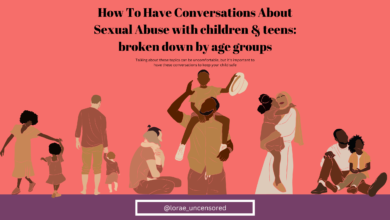
Social Media has become so integrated into modern society at almost every level from the personal to the professional. It’s been a great tool to: stay connected with distant friends, conduct research and complete homework, learn new talents and skills, showcase art, promote small businesses and find like-minded communities.
Social Media has made the world more connected, while also making us more lonely. Social Media has made knowledge more accessible, while also making us more vulnerable to misinformation. The internet can be a safe, expansive, and educational space – but it can also land vulnerable people in predatory situations.
When social media began, parents started to become concerned about the safety of their children while surfing the internet. Today the concern is greater but despite the risks, social media has provided us with enough benefits that most of us will continue to be willing participants – for the foreseeable future. Therefore, the most responsible thing we can do is to educate specifically about the risks associated with social media usage and give guidance to arm our young people and vulnerable populations, who might be at risk for manipulation, against people and companies with malicious intent.

The major risks associated with social media should be taken seriously and discussed early to prevent harm.
One such risk is cyberbullying, which research shows impacts over a third of teenagers, (and over half of LGBTQIA+ teens) and which can lead to an increased risk of self-harm and suicide. Another risk which can be life-altering is that of revenge porn or the leaking of private or personal information without consent. A battle on this front was recently won thanks to local community organization Consent Matters Period which was successful in lobbying the Bermuda government to pass an amendment making the act of leaking non-consensual images illegal. We know that leaked information, private images or videos can be damaging mentally, personally and professionally but it is also important to consider and teach that excessive personal details or misguided opinions willingly shared on our platforms can also put us at risk for attack. These attacks could range from being groomed by a predator, to losing your job or to being a victim of identity theft which is why we should be careful of the things we post online.
Here are some precautions that can use as armor to protect ourselves and our young people:
- Don’t give out your password(s) & change your password(s) regularly
- Don’t share private photos online or through social media
- Check your privacy settings & consider making your page and posts private
- Be mindful that everything you share and post online is part of your permanent digital footprint
- Don’t give personal or sensitive information to anyone you don’t know or have not met in person
- Consider online consent laws in your country/area
- Speak clearly and often with teens about what cyberbullying looks like, what tools they have available to them and who they can trust to discuss it with






